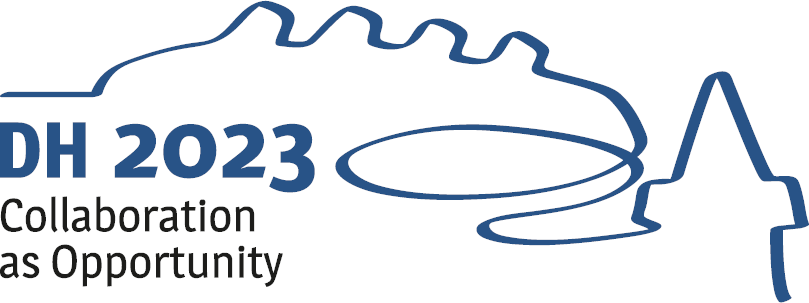Report on a conference session – DH2023, Graz
Thanks to funding from ADHO, DHTech was able to support one DHTech member by paying for their DH2023 registration costs. Read Szemes Botond reflection of the workshop “Digital Literary Stylistics (SIG-DLS)”!
On the opening day of the 2023 DH conference, I attended the event of the Digital Literary Stylistics (SIG-DLS), which provides a platform for young researchers to share their projects in the field of stylistics. This area was understood in a broad sense in the event, in that not only issues of authorship attribution (although many presentations focused on the topic) but also other questions of computational stylistic were discussed.
The central position of authorship was already evident in the opening presentation. Benjamin Nagy’s well-named research (Meter Metters) showed how poetic meter can be related to the question of authorship in ancient literatures. This research not only presented sophisticated and, in many respects, novel statistical procedures, but also had serious philological implications: on the one hand, real philological problems of authorship are common is ancient literatures, and on the other hand (as in all cases, but especially here, due to the distance in time), a knowledge of literary history is essential to understand the results.
For similar questions of authorship attribution, Andrea Nini’s excellent (and provocative in a sense) presentation provided a linguistic-theoretic background. This lecture had the greatest impact on me. It sought to answer the question of why different methods work in the field, and what conceptions of language can explain their success. Nini made an exciting attempt to bring together the insights of cognitive linguistics and quantitative methods. Drawing also on set theory, he argued that schematized linguistic constructions that more easily recalled from short-term memory vary from individual to individual and from group to group – and the most frequent words actually carry information about these schemas. Another important part of Nini’s presentation was that he supported the theoretical insights with measurements of a case study in which he compared the performance of different methods with different theoretical presuppositions.
Another highlight of the program was the presentation from Peter Boot and Marijn Koolen (Computing and Interpreting Valence in Literary Studies), which was related to a range of topics, from sentiment analysis of texts to the question of the narrative arc, which thus provided important insights not only for forensic but also for interpretive approaches in the digital literary studies.
Finally, what was particularly exciting about the event was how the nowadays increasingly popular “lightening talks” were able to integrate organically into the discussions. This is presumably due to the interest of speakers in similar topics - even if the corpora and methods studied showed great variation. The event created the opportunity for real conversations - which can now continue also online thanks to the Latent Reading Discord Server, launched this summer.
